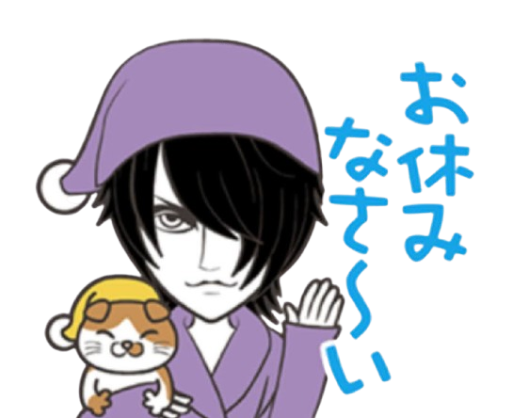



"Die" is a profound introspection on the meaninglessness of life and the potential of said meaninglessness. "die" is the singer's declaration that life should be lived in appreciation (in pursuit of the many possibilities while simultaneously in spite of them); let go of your anguish and allow yourself to be entirely consumed by the beauty of your surroundings.
The song guides you to take part of a journey with the protagonist, abruptly starting with his desperate prayers. He is taking his final breaths. The very first line he says is, "I spread out both my hands when I pray to forgive it all." The line is sudden and provocative, but also very soft and faint. It is the voice of a man who lacks the energy to scream. Next he explains how "you will descend from the sky." Despite the clear Buddhist themes, the line evokes the thought of an angel, which is a very western concept when it comes to religion. However, I think this cross (if this is my western ignorance, forgive me!) of religion is oddly fitting—especially considering the crucifix on the cover of the single. The song is, while wholly about revelation, about crisis—for there can be no new conclusions if you don't question anything. The narrator is surrendering to the confusion around him. The indecisiveness of picking and choosing between religions is very telling of his situation—he just doesn't seem to know what to think and he's finally realizing it.
He says, "That thing called truth—there was none of it in me. I don't even know the meaning of living." If this isn't one of the most blunt things Sakurai has every said, I don't know what is. I've heard from someone that the character he used for "truth" is extremely vague and leaves a lot of wiggle room. Rather than living authentically and passionately, he lived cluelessly. Not really significant, but the way he says "shiranai!!!" in that last bit is one of my favorite things about the whole song. He's desperate. He is literally on his deathbed. The way he brings attention to the line isn't just catchy; it's eye-opening. He's addressing us by addressing himself. The search for meaning in life is apart of the human experience—that's all religion really is. It's searching for meaning. Awfully existentialist, wouldn't you say? (Oh, how I hope he read The Myth of Sisyphus!) What's so mind-boggling about lines like this is how they're spoken to personally to us. Searching for a meaning in life is something everyone has wondered about. It's snippets like this that make the song so inspiring. Atsushi isn't just telling some story here, he's telling everyone's story.
Nothing at all, he then says. "Nothing." This is the first hint at his realization we get—the discovery that life is meaningless. The constant breath leaving your lungs and the elation of it. The monotonous but precious nature of waking up another morning. It's like this in real life, too. Over the years, I think the most memorable events in my life are those in which I've done absolutely nothing. Playing games on the weekends as a kid. Eating pizza from the same place for the millionth time. We don't get nostalgic because we did something once, we get nostalgic because we're getting caressed by the fingertips of our past. It's here that Atsushi starts getting fantastical. There might not be meaning in life, but our appreciation is still logical. The man describes his visions of death as, "stars swimming in the sea," and, "inviting him with smiles." Contrary to the confused worry of the first stanza, he starts viewing death as something neutral, or even peaceful. Something not necessarily worth looking forward to, but worth experiencing. If death is nothing than the other half of life, wouldn't it be one of the most exciting experiences? He describes the "night" as gentle. I think this is all a big metaphor for his return to the Universe (the description of the sea would support the idea that the entire Universe is one, and that his return to it is almost "where he belongs") and just how it's not really all that bad. It's simply apart of existing.
This narrative is only continued as the song goes on. "Crossing the last clouds until the night glitters; I can still fly anywhere, my body exhausted; Flapping my wings until I die." The similarities between the sea and sky are quite clear. Until the night glitters (an obvious reference to "Into the Glittering/Kirameki no Naka de," where "glittering" is a euphemism for death. Which, I find absolutely beautiful.) "Night" is the act of dying while "glittering" is death itself. This line is basically saying, "passing my last moments until I die," twice. The "flight" imagery in the sky is, I think, the parallel of how those stars swam in the sea. This presents the idea that those stars were actually past souls that have already fallen, urging him to join them. This evokes an even MORE Buddhist visual of souls traveling through the universe in hopes of rebirth. If not, then the anticipated return to nothingness...
And now Love. Atsushi's favorite!!! He says, "Let's part here. There's no need to be sad; just give me a light last kiss and the sweet dreams end." Cayce said this song suggests that, "Life itself may be a dream, and to die is to awaken." This would only make the imagery of those star-shaped souls holding our their hands for dying people to join them all the more significant. The most precious moments he's shared throughout his life, mostly with his partner, are but the first step of his journey. (Edit: I've just seen somebody suggest that the "light last kiss" he's recieving could actually be from his mother in the way a mother kisses her children goodnight. The lyrics are vague, making both possibilities, but this image is much more effective at emphesizing the possibly peaceful nature of death. This might also be suitable since the "you" Atsushi refers to could also be his mother's soul taking him with her when he said that "you would come down from the sky." In my opinion, these really accentuate the intimacy of death as well as the fear of it.) Before I summarize any further, I feel I should finish this stanza. "Closing my eyes, I feel the eternity—the warmth called death in my skin." Death is but an embrace. He's finally understanding and succumbing himself to the will of the Universe. While this song presents itself as a nihilistic one, it's probably one of the most encouraging songs he's written. With this whole album being about death (Don't quote me on that!!!!!!), it'd only make sense that at least one song suggests the possibility of something much more valuable that proceeds death. Not to be mistaken for "meaningful," as it's the meaninglessness OF the experience that makes it so amazing. There are no restraints. You are at the hands of "destiny," per se. We all are. Even if death really is the end, that makes living so much more beautiful.
And here is where everything becomes all about interpretation. "It's not a dream," he claims. Funny, since that's pretty much what he just said. Let's read further. "Upon waking, far away and deep—where is this? Who am I? I've broken through." At this point, your soul is all that's left. Is apart of Buddhism not surrendering your worldly possessions for the sake of enlightenment? Returning to your core; your soul, and only your soul? Oh my golly gosh. His soul is finally transferring between that of one inside a body and another fish. This stanza would entertain the notion that life is the dream and that death is truth. It makes perfect sense why he lived without truth in the beginning, that was the point! It is the "living" portion of life and death that doesn't hold significance. (If I sound like I'm contradicting myself, sorry. This stuff gets confusing.)
He's officially become one of the fish in the sea.
My body about to break apart with my voice, my love
Looking down at my blue planet
Vanishing far away
To everything, goodbye.
This part is a lot less symbolic and a lot clearer. His soul has truly separated from his body. He still resonates with—but doesn't obtain—those that he identified so heavily with throughout his life (His love and his voice: this is literally the definition of Atsushi.) As his soul departs from his body, he's waving goodbye for one of the last times.
And now the ending. While the previous stanza was explaining the process of dying, this is the mental enlightenment that comes with it:
I can never return again
To that ocean where I was born
Looking down to gaze at my blue planet
Vanishing far away
To everything, goodbye.
Well, this evokes the idea that the "sea" was actually the people on the ground. However, that would contradict what he just said; I assume it implies that both life and death are separate "seas," which would only make the idea of death even more lovely. I think this completely different interpretation only supports the parallel even more—souls are souls, no matter what state of consciousness they harbor. All he can do now as his soul flies away is look down (look down as in he's rising and turning his head; I understand that "looking down on" can mean tio judge someone else) at his Home. And now he succumbs. No explanation, because it simply doesn't matter. It'll be meaningless anyway—that's why it's so beautiful. Everyone may be at the edge of their seat, but the answer to what happens isn't up to Atsushi; it's not even up to us. Like he already said, it's up to the Universe. Now we wait. That is why this song is so inspiring. The world offers so many different perspectives on what happens after death that we hardly forget to appreciate the life that we do live. This song is a reminder to love what's in front of you. It goes back to the very first line: Praying to forgive it all. Pardon those around you. Forgive those that have wronged you. Live a life of appreciation rather than a life filled with grudges.

The sky and crucifix position on the single cover is all the more provocative. The future. What remains. The instrumentals are a whole different ballfield—I couldn't dream to analyze the rhythm in a million years. All I can say is as follows: pay attention to the ending sounds + what Atsushi does when performing the song live. It'll mean a lot more. Take what you've learned and show it to someone who actually knows anything about melody. I've done all I can do here.
Also, this song has a lot of very obvious Asian inspirations. I cannot and will not be analyzing them. I am just some white guy at the moment and know nothing about any of that. Sorry! And in relation to the music video, his hands are out. Like the crucifix pose he strikes before singing it every single live. For the most of the song, Atsushi is in a flower field singing and the other members are playing, but in a parallel flower field without him. Their faces are gray, as is his in certain clips. I honestly don't get any of this; ask a film person. If anyone does ask around, please email me! I would love to see more analysis of "die," especially parts I didn't cover (like the vmelody or music video).

This site was coded by hand with much love and tears. Thanks so much for stopping by! Don't forget your umbrella on the way out. ˚ʚ♡ɞ˚